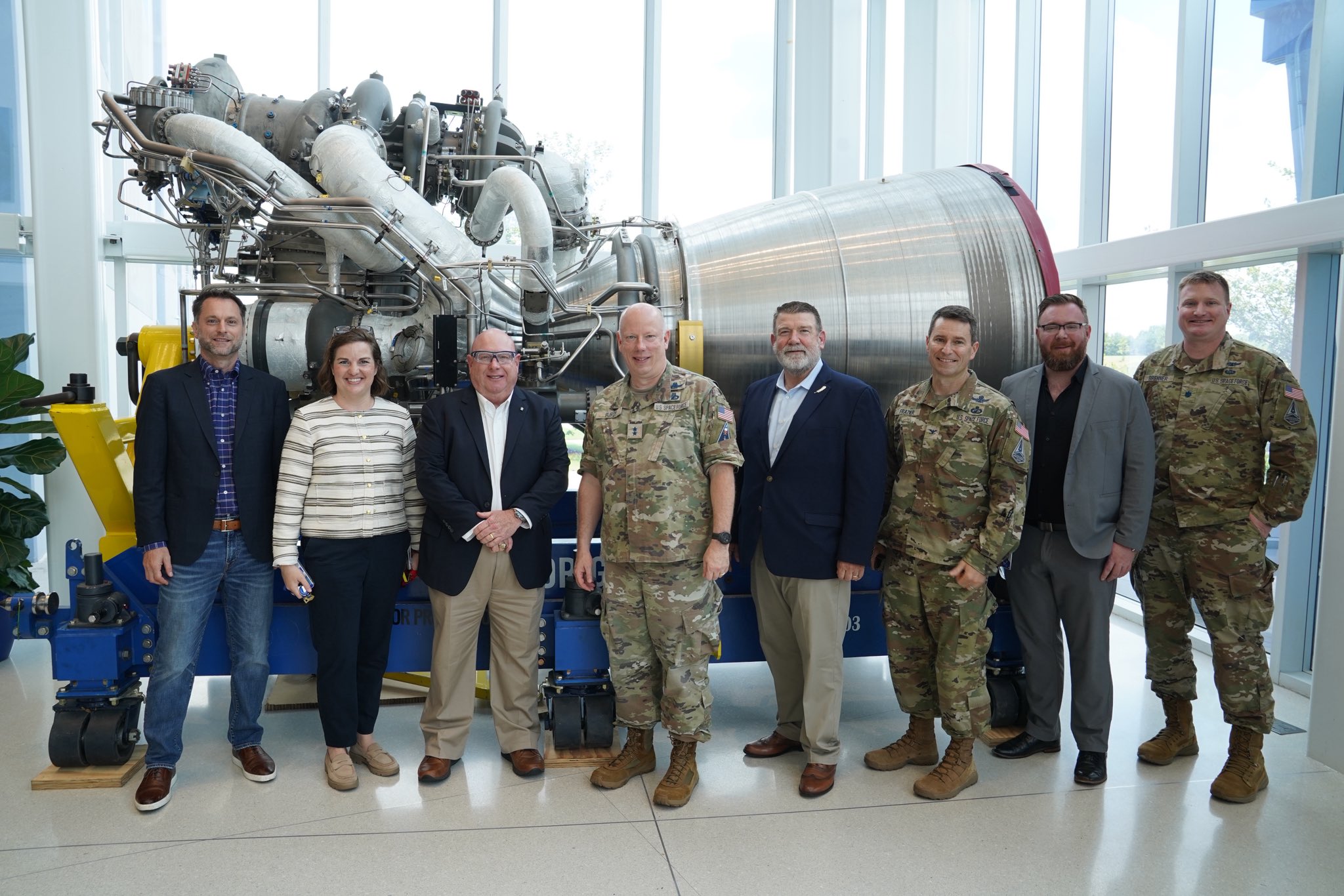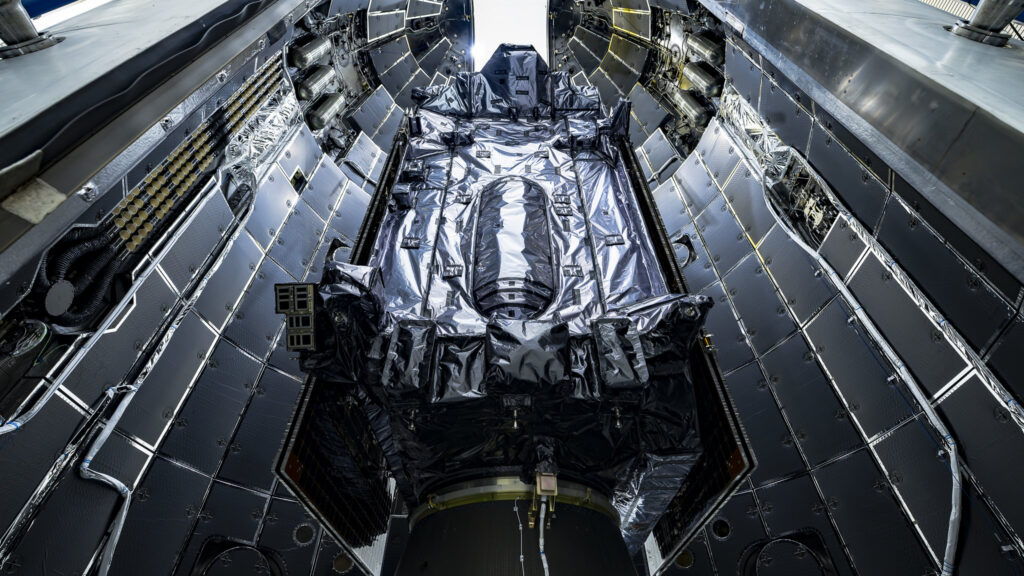Now Reading: Blue Origin, Anduril win military ‘rocket cargo’ study contracts
-
01
Blue Origin, Anduril win military ‘rocket cargo’ study contracts
Blue Origin, Anduril win military ‘rocket cargo’ study contracts


WASHINGTON — Blue Origin and defense tech contractor Anduril Industries have secured new contracts to help the U.S. military explore whether commercial rockets can be used to move supplies around the globe at unprecedented speeds.
The Air Force Research Laboratory (AFRL) last month awarded Blue Origin $1.3 million and Anduril $1 million under the Rocket Experimentation for Global Agile Logistics program, known as REGAL, according to a statement from program manager Daniel Brown.
Blue Origin will assess how its space vehicles could be adapted for “point-to-point” transport — launching cargo payloads aboard a rocket from one location and deploying them at specific locations. Anduril’s award is for “design and analysis to integrate multiple potential government payloads into a rocket cargo delivery container or reentry system,” Brown said.
The effort is part of AFRL’s broader rocket cargo initiative, which envisions using commercial launch systems like airlines are used today — on-demand, service-based contracts that could deliver military cargo anywhere on Earth in under an hour. Potential missions include emergency supply deliveries to conflict zones or humanitarian aid during natural disasters.
For Blue Origin, the AFRL award is its first contract supporting rocket cargo. The company in 2021 signed a cooperative agreement with U.S. Transportation Command to study the feasibility of rocket-powered logistics. Anduril is entering the program for the first time with this award.
Blue Origin, founded by Amazon billionaire Jeff Bezos, develops reusable rockets and spacecraft for commercial launches, lunar landers and crewed spaceflight.
REGAL, launched in 2021, has become AFRL’s primary channel for testing commercial proposals in this space. Sierra Space won a REGAL award in October 2024, and Rocket Lab followed in May 2025.
The Pentagon has long been interested in point-to-point rocket transport, but cost, safety and infrastructure challenges have kept the concept experimental. AFRL officials say the goal is not to build and own rockets but to leverage commercial providers as the technology matures, similar to how NASA buys space transport services from private companies.
Stay Informed With the Latest & Most Important News
Previous Post
Next Post
-
 01Two Black Holes Observed Circling Each Other for the First Time
01Two Black Holes Observed Circling Each Other for the First Time -
 02From Polymerization-Enabled Folding and Assembly to Chemical Evolution: Key Processes for Emergence of Functional Polymers in the Origin of Life
02From Polymerization-Enabled Folding and Assembly to Chemical Evolution: Key Processes for Emergence of Functional Polymers in the Origin of Life -
 03Astronomy 101: From the Sun and Moon to Wormholes and Warp Drive, Key Theories, Discoveries, and Facts about the Universe (The Adams 101 Series)
03Astronomy 101: From the Sun and Moon to Wormholes and Warp Drive, Key Theories, Discoveries, and Facts about the Universe (The Adams 101 Series) -
 04True Anomaly hires former York Space executive as chief operating officer
04True Anomaly hires former York Space executive as chief operating officer -
 05Φsat-2 begins science phase for AI Earth images
05Φsat-2 begins science phase for AI Earth images -
 06Hurricane forecasters are losing 3 key satellites ahead of peak storm season − a meteorologist explains why it matters
06Hurricane forecasters are losing 3 key satellites ahead of peak storm season − a meteorologist explains why it matters -
 07Binary star systems are complex astronomical objects − a new AI approach could pin down their properties quickly
07Binary star systems are complex astronomical objects − a new AI approach could pin down their properties quickly


















